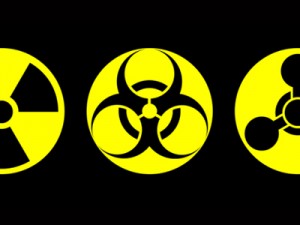 The head of the opposition Free Syrian Army (FSA) told CNN’s Christiane Amanpour on Thursday he has intelligence showing Syrian President Bashar al-Assad’s government is moving its chemical weapons out of the country.
The head of the opposition Free Syrian Army (FSA) told CNN’s Christiane Amanpour on Thursday he has intelligence showing Syrian President Bashar al-Assad’s government is moving its chemical weapons out of the country.
“Today, we have information that the regime began to move chemical materials and chemical weapons to Lebanon and to Iraq,” Gen. Salim Idriss said from inside Syria.
CNN could not independently verify Idriss’ claim.
Several senior Israeli officials told CNN’s Elise Labott that they have not seen movements into Lebanon or Iraq, and that they did not believe it made sense for the Syrians to be moving weapons so soon.
And Iraq categorically denied that chemical weapons had crossed into its territory, with an adviser to Iraqi Prime Minister Nuri al-Maliki speculating “there is a political agency behind this claim.”
“We were the victims of chemical weapons under Saddam’s regime,” said the adviser, Ali al-Moussawi. “And we will never allow to let any country to transfer chemical materials to our lands at all.”
Still, if the allegation were true, it could fundamentally shift the assessments of U.S. intelligence officials, CNN’s Barbara Starr reports.
Namely, these officials have said that al-Assad would not disperse his stockpile of chemical weapons because he knows the United States would not bomb it, that Syrian security forces firmly control the weapons and that there exists a large, secure infrastructure that has been moving these arms from rebel-held areas.
Moving these weapons into Iraq, Lebanon or some other country outside Syria might prompt U.S. intelligence authorities to question whether they were being transferred by a rogue element or whether it was evidence of a crack in the government’s control.
The Syrian opposition is afraid, Idriss told CNN’s Amanpour, that al-Assad’s forces will then use those weapons sometime in the future – even after the international effort to collect and destroy its chemical weapons arsenal is finished.
“The regime,” he said, “is behaving like Saddam Hussein.”
Idriss said he talked Thursday about what’s happening diplomatically with U.S. Secretary of State John Kerry, who the rebel leader claimed told him “that he will discuss with the Russians how honest the regime is.”
“And if our friends discover that the regime is trying to play games and waste time,” Idriss said by way of summarizing Kerry’s remarks, “the threat of the strikes is still on the table.”
Earlier on Thursday, Idriss told NPR that he had not received “any weapons from our American friends,” despite reports that lethal aid had indeed started reaching the Syrian opposition.
That includes a U.S. official who told CNN on Wednesday that light and anti-tank weapons as well as ammunition – paid for by the United States albeit made elsewhere – had begun flowing to Syrian rebels over the past two weeks.
Idriss told Amanpour that he “can’t talk about weapons,” though he did stress that opposition forces were getting help.
“We are getting now a lot of support from our American friends, but I can’t talk in detail about all kinds of the support,” he said.
For its part, the opposition will support efforts to take control of and eventually dismantle Syria’s chemical weapons, with Idriss saying, “We will do our best to help them.” But the rebel leader questioned that things will play out as hoped.
“I think the regime will prevent them to go to the locations and to do their job,” Idriss said. “I think the regime will tell them, ‘Today you can’t go out of the hotels because the situation is very dangerous, and tomorrow you can’t go,’ and they will delay and delay.”
And even if Idriss is proven wrong and Syria’s chemical weapons are wiped out as part of this process, the rebel leader stressed that bigger issues remain in a civil war that the U.N. estimates has killed more than 100,000 people – most of them by conventional weapons.
“We have many, many problems with the regime,” he said. “The chemical weapons (are) not … the only problem that we have.”
CNN

Leave a Reply
You must be logged in to post a comment.